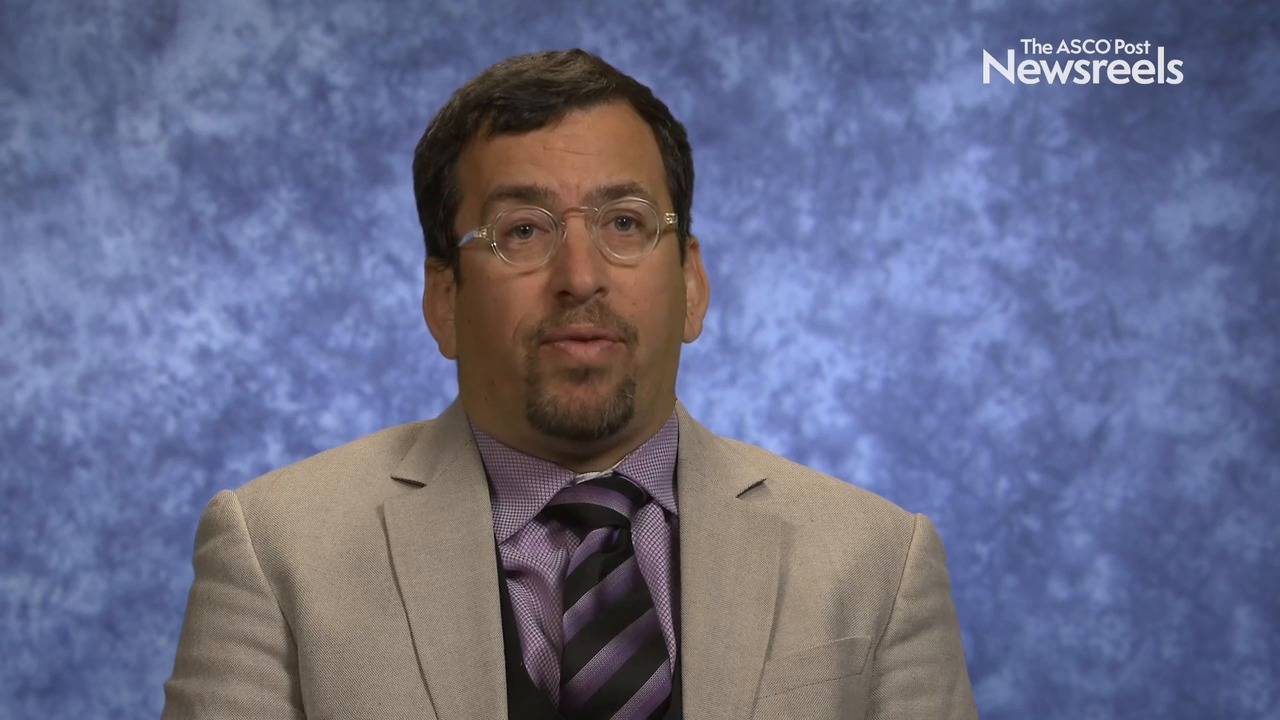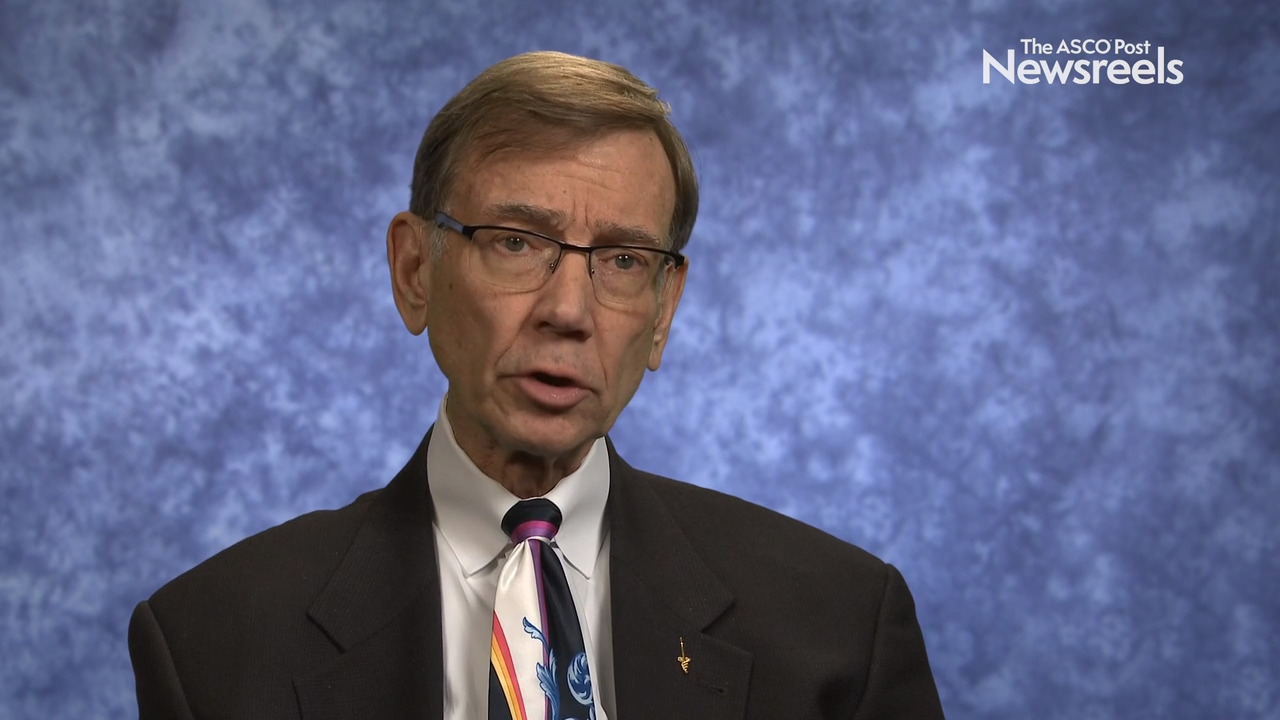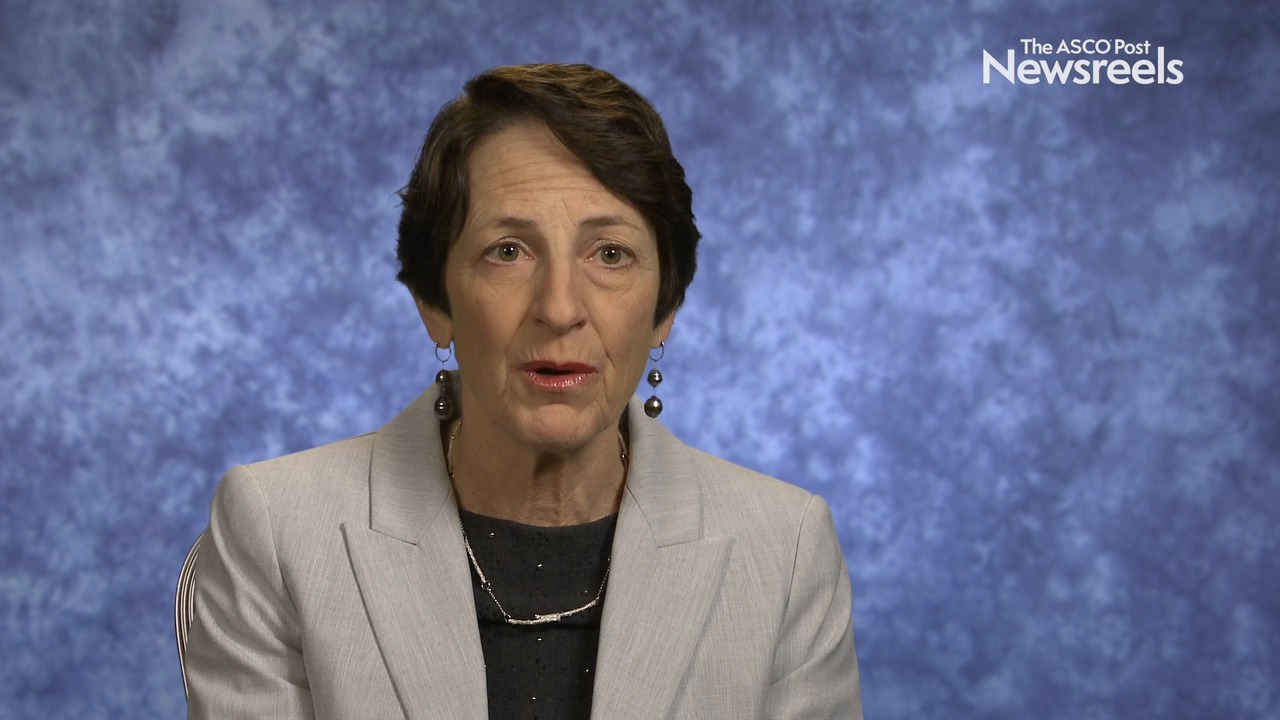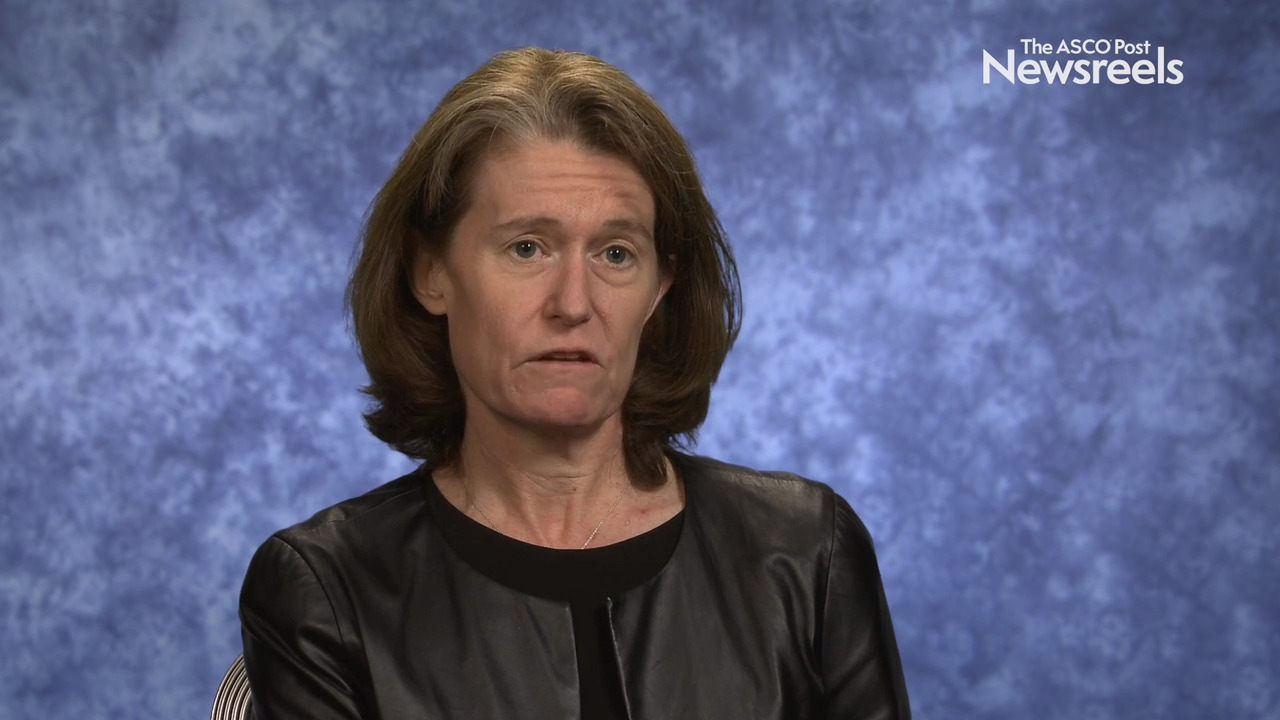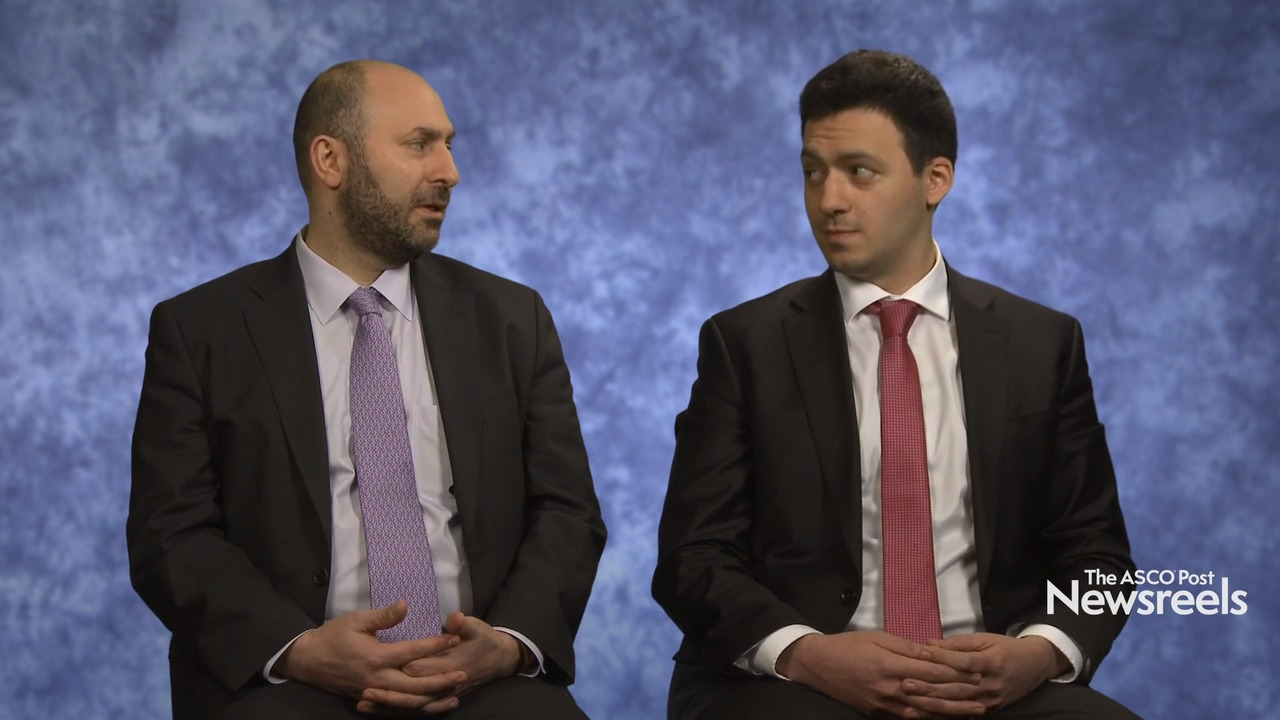Madhav V. Dhodapkar, MBBS, on Cancer Vaccines: Emerging Trends
2019 ASCO-SITC Clinical Immuno-Oncology Symposium
Madhav V. Dhodapkar, MBBS, of Emory University, summarizes a session he co-chaired on emerging approaches for vaccines, personalized/neoantigen vaccines, and mutation-targeted immunotherapy for diffuse midline gliomas.
Edward B. Garon, MD, of the Olive View–UCLA Medical Center, discusses phase IIIb/IV study findings on reducing the frequency of nivolumab dosing, from 480 mg every 4 weeks to 240 mg every 2 weeks, in patients with previously treated advanced non–small cell lung cancer (Abstract 100).
Nicholas Vogelzang, MD, of the Comprehensive Cancer Centers of Nevada, discusses phase Ib/II findings on pembrolizumab and lenvatinib given to 20 patients with metastatic transitional cell carcinoma of the bladder who had received no prior checkpoint inhibitor therapy (Abstract 11).
Kim A. Margolin, MD, of City of Hope, summarizes a session she co-chaired on combination immunotherapies, locoregional therapies, systemic therapies, and enhancing natural killer cells.
Elizabeth A. Mittendorf, MD, PhD, of Dana-Farber Cancer Institute, discusses the encouraging data on atezolizumab plus nab-paclitaxel in the first-line setting for metastatic triple-negative breast cancer, and the potential benefits of combining immune checkpoint inhibitors with targeted treatment in breast cancer.
Toni K. Choueiri, MD, and Ziad Bakouny, MD, both of Dana-Farber Cancer Institute, talk about novel cytokines, checkpoint inhibitors, and vaccines in the treatment pipeline for renal cell carcinoma.
